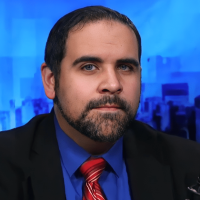
U.S. Senator Heidi Heitkamp (D-N.D.) wants to confirm the currently pending nominees for the board of the Export-Import Bank of the United States in order to meet the necessary quorum to reopen the bank.
“My concern is that we will get [Kimberly Reed, nominee for Ex-Im board president], and we won’t get a quorum,” Senator Heitkamp recently told reporters.
A minimum of three members on the Ex-Im Bank’s board of directors is required for a quorum. Without a quorum, the board cannot provide or consider medium or long-term transactions exceeding $10 million.
The Ex-Im Bank’s board of directors is composed of five seats. At present, there is only one person serving on the board, acting president Jeffrey Gerrish.
President Trump named Gerrish — who is also the deputy U.S. trade representative for Asia, Europe, the Middle East, and Industrial Competitiveness — to serve as the Ex-Im Banks’s acting president this past April.
The Ex-Im Bank has not had a quorum since 2015; as a result, it has been in hiatus for the past three years.
Senator Heitkamp is a strong proponent of the Ex-Im Bank, and wants the president’s nominees to be confirmed by the Senate Committee on Banking, Housing, and Urban Affairs and by the Senate at large in order to meet the requirements for a quorum.
The Ex-Im Bank was originally created by President Franklin Roosevelt via Executive Order 6581 in 1934, as the Export-Import Bank of Washington. Today, the Ex-Im Bank is the United States’ official export credit agency. Its mission is to facilitate the export of U.S. goods and services.
The Ex-Im Bank receives its funds from the U.S. Treasury (i.e., the American taxpayers), and then loans them at lower-than-market-value rates with long-term deferred due dates to the governments of foreign countries such as Communist China, Russia, Pakistan, Mexico, and developing countries in sub-Saharan Africa, Asia, and Latin America.
Despite not having the sufficient number of board members required for a quorum, the Ex-Im Bank has nevertheless “authorized $133 million of transactions in sub-Saharan Africa,” according to the 2018 Biennial Report On The Implementation Of The African Growth And Opportunity Act recently published by the Office of the U.S. Trade Representative (USTR).
In the event that the recipient country fails to pay back its loan, the U.S. taxpayer foots the bill entirely. As former Congressman Ron Paul (R-Texas) put it in a newsletter to his constituents in 1980, “The Soviets get the goods. The big banks and companies get the profits. And the taxpayer gets the bill.”
In the years prior to 2015, the Ex-Im Bank subsidized less than two percent of all U.S. exports. However, more than 61 percent of its financing went to 10 U.S. corporations, including Boeing, Caterpillar, General Electric, Applied Materials Inc., and the Sikorsky Aircraft Corporation.
In fact, the Ex-Im Bank is also known as “Boeing’s Bank” or the “Bank of Boeing,” because Boeing has received upwards of 40 percent of the funds that Ex-Im discharges for foreign countries to purchase its aircraft.
Senator Patt Toomey, who serves on the Senate Committee on Banking, Housing, and Urban Affairs and is the chair of the Senate Banking Subcommittee on Financial Institutions and Consumer Protection, is strongly leaning in favor of supporting Kimberly Reed to serve as the official president of the Ex-Im Bank’s board of directors.
However, he still has reservations over supporting the other nominees due to his disagreements with Trump’s tariffs on steel and aluminum.
If Heitkamp and other pro-Ex-Im Democrats get their way, the Ex-Im Bank will officially be back in business, securing more taxpayer-subsidized loans to communist and dictator-run countries such as China and Russia.





